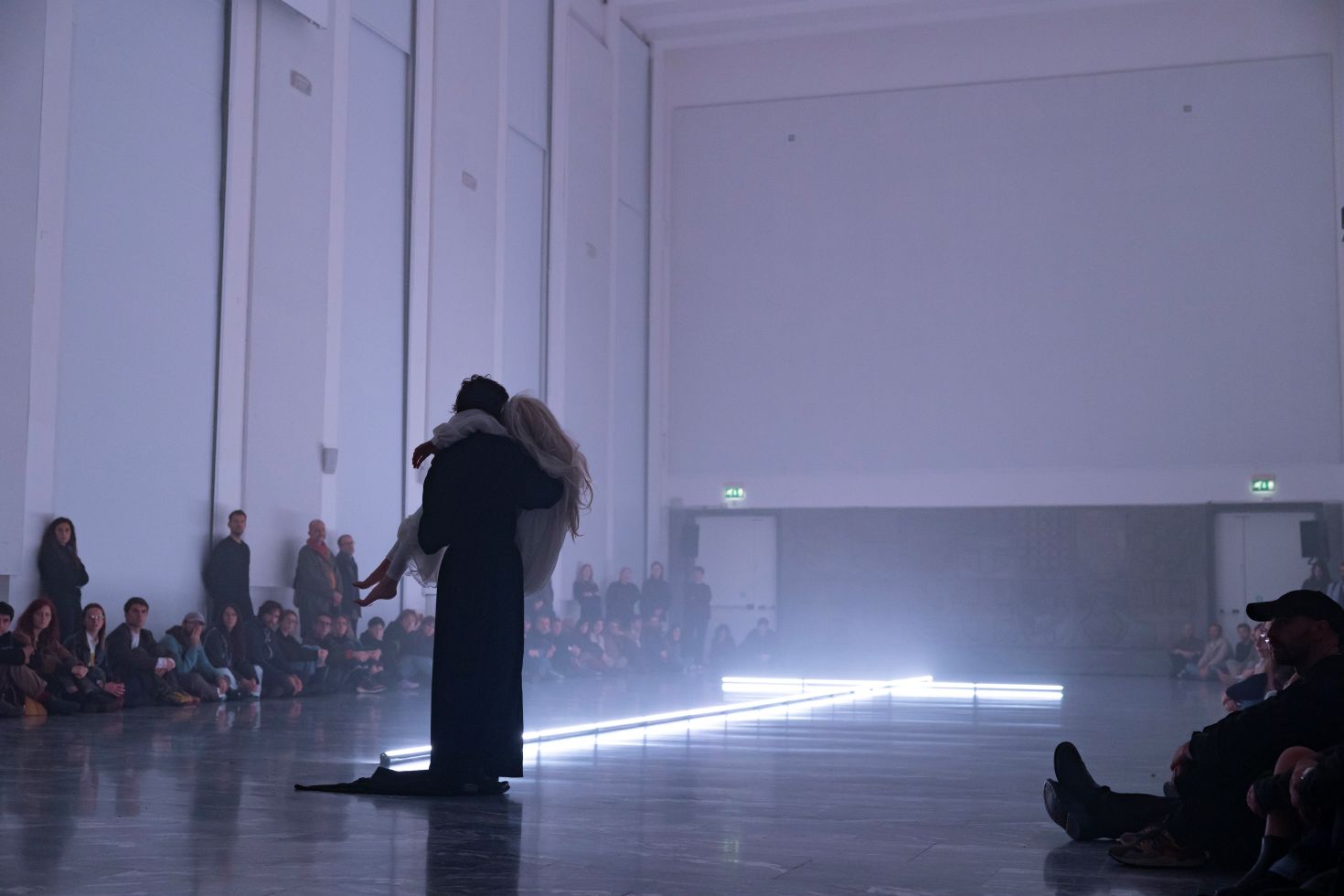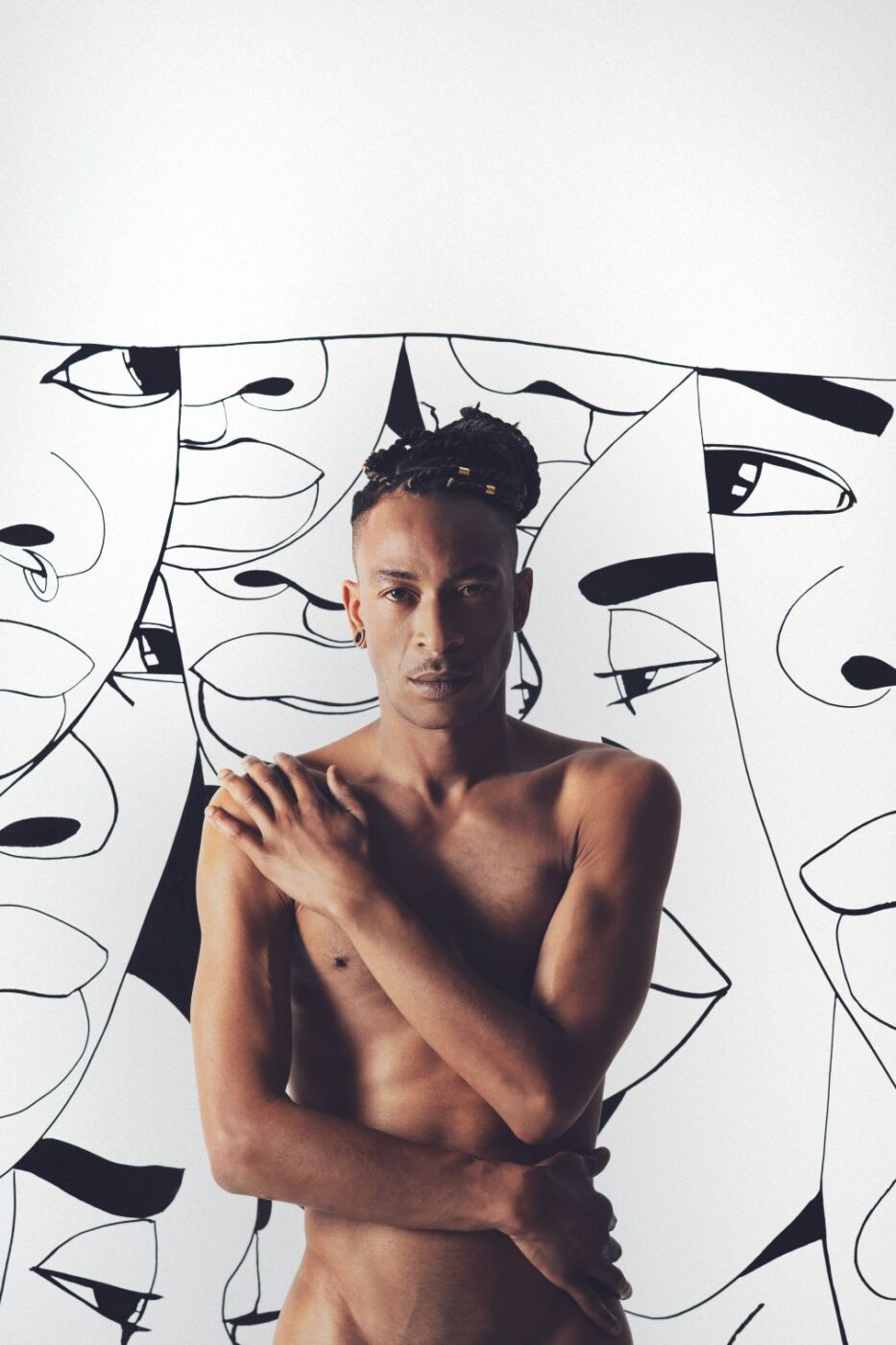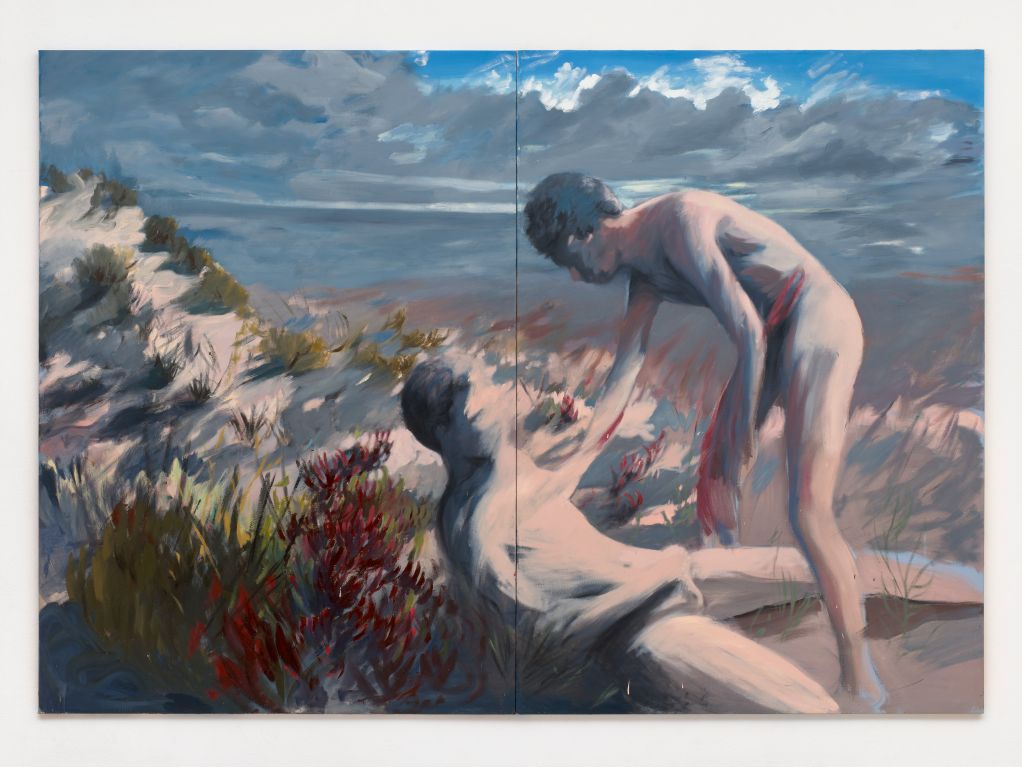preview
BoCA invites deviation to distort reality
The 2025 edition of the biennial is presented, for the first time, in the two Iberian capitals

Between Lisbon and Madrid, but with doors and windows wide open to the world, BoCa - Biennial of Contemporary Arts promises to mark the rentrée with world premiere creations by Kiluanji Kia Henda, João Pedro Rodrigues & João Rui Guerra da Mata, Tânia Carvalho & Rocío Guzmán and Dino D’Santiago, who wrote an opera.
From the lively intersection of the performing and visual arts, music, and cinema, comes the “Camino Irreal,” the title of this unprecedented edition of BoCA, held simultaneously in Lisbon and Madrid. This reinforces, in the view of the biennial’s directors, “the Iberian axis of artistic creation and presentation.”
For John Romão, the last time he directs the program (the curator is, since ,April the artistic director nominated for Évora 2027 – European Capital of Culture), it is “an invitation to deviation, to symbolic displacement, and to the possibility of reconfiguring the place of the artist and the spectator” in this “increasingly distorted current reality.” And, if the post-truth era has already imposed a perception of reality, such that “we question everything we took for granted,” Romão believes that artists are the ones responsible for “bringing new imaginaries capable of challenging it.” Perhaps for this reason, the dozens of artists involved in this BoCA are focusing on deviant and resistant projects.
The first major moment of this “detour” falls to musician Dino D’Santiago, who, at Romão’s invitation, accepted the challenge of staging a five-act opera that “intersects history, culture, and Portuguese multicultural identity.” Adilson, says the musician, takes the title from the name of the protagonist, “a man of African descent, born in Angola to Cape Verdean parents, who has lived in Portugal for over 40 years without ever having obtained Portuguese citizenship.” With a libretto by Rui Catalão, the play interweaves this story set amidst the “bureaucratic labyrinth that prevents Adilson from being fully recognized by the country where he has always lived” with “other testimonies of social injustice and discrimination.” It premieres September 12 at Centro Cultural de Belém.

A couple of days earlier, on September 10, the biennial officially opens with an emblematic work by Alberto Cortés, considered one of the artists “most prominent in the Spanish theater scene today.” After having passed through Porto last May, Analphabet brings to Teatro do Bairro Alto “the invention of a queer myth” through which, a kind of Peter Pan, “a romantic spirit,” manifests itself to couples in crisis, “not to heal, but to reveal.”
Cortés also has another project underway at BoCA, this time a surprising artistic collaboration with the Portuguese painter João Gabriel. Scheduled to premiere in early October at Teatro de La Abadia in Madrid, Os Rapazes da Praia Adoro, takes as a reference the intimacy present in the audiovisual archive of pornographic cinema from the 1970s and 1980s [of the 20th century] that inspires João Gabriel’s paintings” with the poetry of words and bodies that revealed themselves as landscapes in Cortés’ theater. The play arrives in Lisbon, also at Teatro do Bairro Alto, in the last days of the biennial, on October 25 and 26, and is one of the collaborations between Portuguese and Spanish creators – there are plays by Tânia Carvalho with Rocío Guzmán (Nossas Mãos) and by Francisco Camacho with Elena Córdoba (Uma ficção na dobra do mapa).

With the program still to be finalized, and pending the announcement of more artists, Romão highlighted at the press conference as “one of the main bets of this edition” the world premiere of Coral dos Corpos sem Norte, the latest creation by Angolan artist Kiluanji Kia Henda. In addition to a show about travel and migration, which premieres at Sala Estúdio Valentim de Barros on September 20, the project includes a powerful installation at MAAT, open from October 4 to November 3, with three performance activations, with free admission, on October 5, 12 and 19.
Another major highlight of the Lisbon biennial is Milo Rau’s latest creation with French playwright and activist Servane Dècle, The Pelicot Trial. Premiered in Vienna and after a run at the Avignon Festival, this “performative reading” arrives in Lisbon, a tribute to Gisèle Pelicot, a woman who was the victim of more than 200 rapes under chemical subjugation over the course of a decade. A play that seeks to restore “the dignity of voice to those who have been silenced,” to be seen on October 11 at the National Pantheon.
In the cinema area, BoCA, with Cinemateca Portuguesa and Filmoteca Española, presents Malamor/ Tainted Love, a series in which filmmakers João Pedro Rodrigues and João Rui Guerra da Mata place their work in dialogue with that of others, such as John Waters, Pedro Almodovar, Rainer Werner Fassbinder and Lucio Fulci. In addition to this “carte blanche” of sorts, which takes place simultaneously in Lisbon and Madrid, there are also two new creations: the world premiere of the short film 13 Alfinetes, a BoCA commission dedicated to the iconography of Saint Anthony, also present in the Spanish capital through Goya’s frescoes in the Hermitage of San Antonio de la Florida; and the film installation With No Before and After, on display at Sociedade Nacional de Belas Artes from September 11.
Other highlights of the biennial in the portuguese capital: Toda la Luz del Mediodía, by Lisbon-based Spanish artist Julián Pacómio (September 13 and 14); Ocean Cage, “an immersive and powerful show” inspired by “stories of the inhabitants of Lamalera” and centered on “issues of solidarity, economic coexistence and disappearing ecosystems,” by Chinese visual artist Tianzhuo Chen and Indonesian performer Siko Setyanto (September 19 and 20); Yo No Tengo Nombre, a performance installation at Estufa Fria by Catalan theater collective El Conde de Torrefiel (October 9 to 15); A Beginning #16161D, by Spanish duo Aurora Bauzà & Pere Jou (October 24 and 25); and Totentanz, by Marcos Morau and La Veronal (also on October 24 and 25)
Four Leading Playwrights at the Prado Museum
Following artistic residencies at the Prado Museum in Madrid, Tiago Rodrigues, Patrícia Portela, Angélica Liddell, and Rodrigo García have now written and directed creations inspired by works from the collection of one of Europe’s largest museums, in a series entitled Words and Gestures: for a Performative Collection at Museo del Prado. John Romão explains that the performances will be “presented in four different rooms, lasting approximately 20 minutes, and offering a unique experience that the public is invited to take in a closed-door Prado Museum.” For those planning a trip to Madrid, make a note in your calendar: this rare event takes place on September 27 and 28, and October 4 and 5. The painting from the museum’s collection that inspired Patrícia Portela has already been unveiled and will provide the inspiration for the play that the Portuguese playwright is preparing, with a performer: El 3 de mayo en Madrid o “Los fusilamientos”, by Francisco Goya.